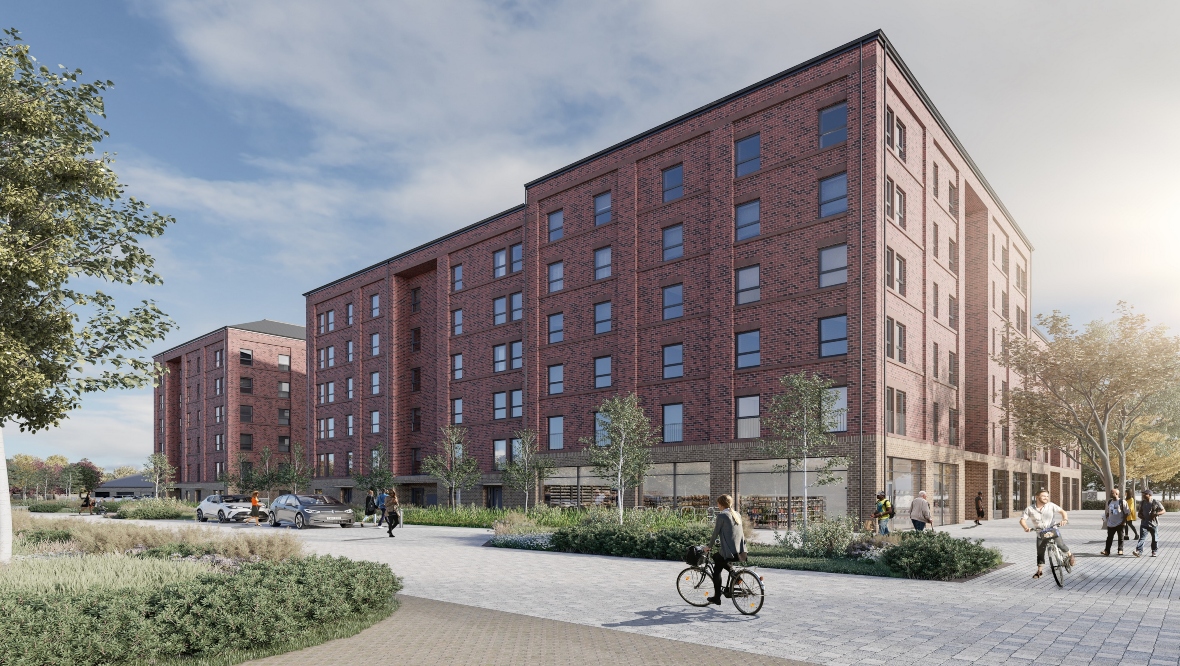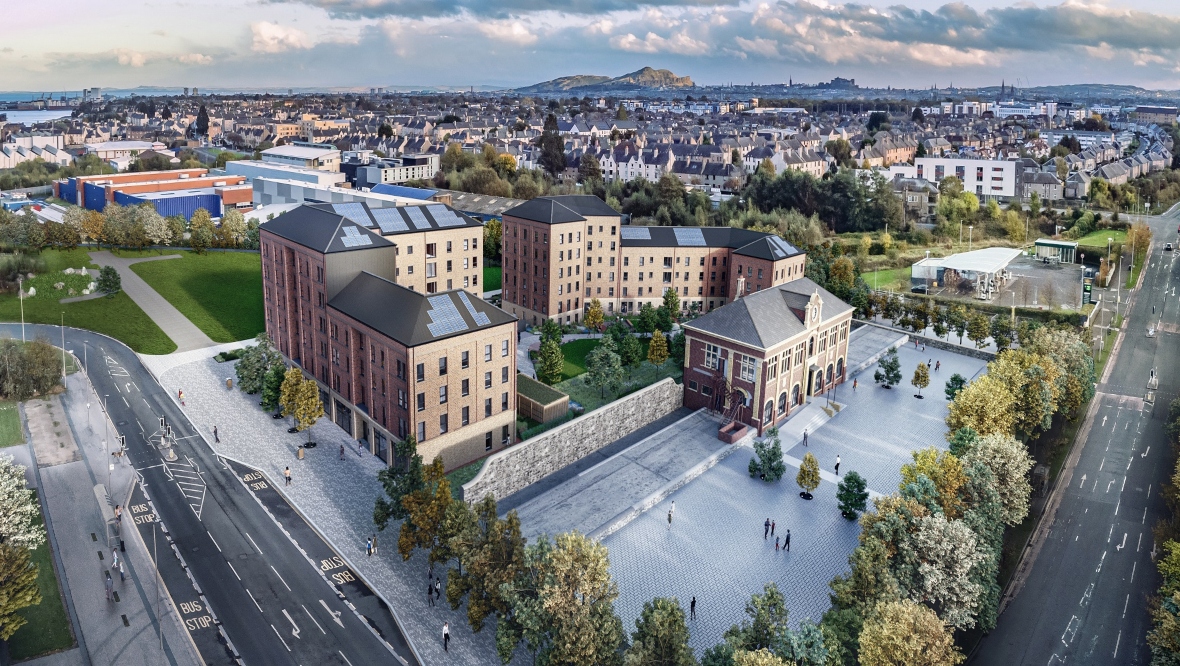Construction on the capital’s first net zero housing development has begun in north west Edinburgh.
The 75-home Granton D1 affordable housing pilot is part of the £1.3bn net-zero home Granton Waterfront regeneration project.
The development proposal boasts a 20-minute neighbourhood approach, giving people the ability to meet most of their daily needs within a 20-minute return walk from home.
It is designed with active travel routes, public transport links and local amenities – including three commercial units on the ground floor level of D1 Homes.
 CCG
CCGWhere parking is provided, electric vehicle (EV) charging points will also be installed to encourage uptake of environmentally-friendly electric vehicles.
To achieve net-zero carbon emissions, the housing development will have improved fabric performance and triple-glazed windows, which are expected to combine and dramatically reduce heat loss and energy demand.
It will also employ an all-renewable energy strategy delivered by an entirely electric, on-site energy centre and solar PV panels.
The project is led by the City of Edinburgh Council with Glasgow-based contractor CCG (Scotland) Ltd.
Granton D1 is part of the council’s ambition to deliver 20,000 affordable homes by 2027, and is expected by the council to contribute towards achieving the city’s target to become a net zero city by 2030.
The council’s housing, homelessness and fair work convener, Councillor Jane Meagher, said: “Using the most advanced construction methods and materials, these homes will be greener, warmer and more affordable.
“Granton D1 homes really have been designed to improve the lives of tenants and homeowners and will of course help us to meet Edinburgh’s net zero targets. We’re excited to now bring the blueprints to life.”
Granton is one of Scotland’s largest brownfield sites and one of its most dramatic urban coastal green spaces.
CCG managing director, David Wylie, said: “The aim of the EHD initiative is to prove if net zero housing delivery is affordable, practical, and scalable in order to meet Scotland’s ambitious targets as we transition to become a net zero economy by 2045.
“As the cost of living continues to increase, we are also responsible for understanding how we can tackle the fuel poverty agenda in the here and now by continuing to advance construction methods and adopt new, renewable technologies.”
Follow STV News on WhatsApp
Scan the QR code on your mobile device for all the latest news from around the country


 CCG
CCG

























